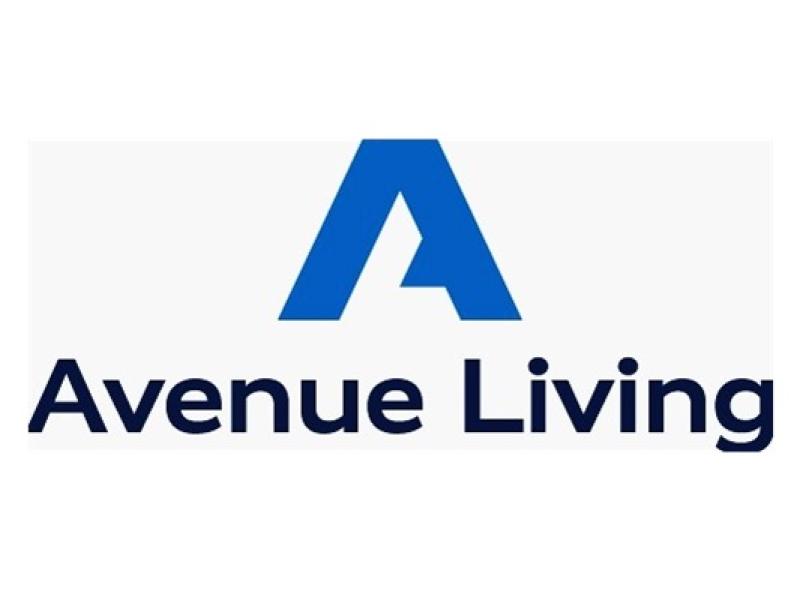As of October 22, 2021, Ontario started to issue and require the use of Canadian proof of vaccination against COVID-19 (POV) in order to use various federal and provincial services including travel, as well as to access certain indoor businesses and settings.
Other provinces have also decided to require POV for certain purposes, subject to exemptions.
In Ontario, POV is known as the Enhanced Vaccine Certificate (the “EVC”) and is shown by a scannable QR code available through the Verify Ontario app (available for download on Apple and Android phones). The EVC is not necessary if you have been given the formal vaccine receipt showing you have received the full injections. The benefit of the EVC is the access to the QR code on your phone.
POV may also include a vaccination receipt from another jurisdiction that shows the holder is fully vaccinated against COVID-19.
The following is according to: www.ontario.ca/proofofvaccination.
When POV is required in Ontario
As at October 27, 2021, subject to the limited exceptions noted below, you must show your POV and ID to enter:
Indoor areas
– restaurants, bars and other food and drink establishments without dance facilities;
– food or drink establishments with dance facilities, including nightclubs, restoclubs and other similar establishments, and outdoor areas of these establishments;
– meeting and event spaces (with limited exceptions);
– facilities used for sports and recreational fitness activities and personal physical fitness training (with limited exemptions), including gyms, fitness, sporting and recreational facilities, pools, leagues, sporting events, water parks, indoor areas of facilities where spectators watch events;
– casinos, bingo halls and other gaming establishments;
– concert venues, theatres and cinemas;
– bathhouses, sex clubs and strip clubs;
– horse racing tracks, car racing tracks and other similar venues;
– commercial film and TV productions where there is a studio audience.
Outdoor areas
Any of the following outdoor areas that have a normal capacity of 20,000 or more people:
– outdoor meeting and event spaces (with limited exemptions);
– outdoor facilities used for sports and recreational fitness activities, including water parks and personal physical fitness training (with limited exemptions) including gyms, fitness/sporting/recreational facilities, pools, leagues, sporting events, waterparks, and indoor areas of facilities where spectators watch events;
– outdoor concert venues, theatres and cinemas;
– outdoor horse racing tracks, car racing tracks and other similar venues; and
– outdoor areas of food or drink establishments with dance facilities, including nightclubs, restoclubs and other similar establishments, and indoor areas of these establishments.
Exemptions for POV
You do not have to show proof of vaccination if you are:
– under age 12;
– under age 18 and entering the indoor premises of an indoor sports or recreational fitness facility solely for the purpose of actively participating in an organized sport;
– entering a business temporarily to: use a washroom; access an outdoor area that you can only get to by going indoors; make a retail purchase; place, pick up or pay for an order; make a bet or pick up winnings at a racing track; or purchase admission;
– entering the business for health and safety purposes.
If you are unable to be fully vaccinated for a medical reason, you need to show a written document from a physician or nurse practitioner. The written document must include:
– the name and contact information of the physician or nurse practitioner who wrote the note (for example, phone number and address);
– a logo or letterhead identifying the physician or nurse practitioner;
– a statement that there is a medical reason for your exemption for being fully vaccinated against COVID-19; and
– the time period for the medical exemption.
POV and capacity restrictions
Previously, both indoor and outdoor settings in the province were subject to capacity limits, for example 50 per cent for gyms and similar indoor amenities.
Effective October 25, 2021, the Ontario government has lifted capacity restrictions and physical distancing requirements for indoor settings where proof of vaccination is required or where the operators choose to require proof of vaccination.
Recent POV decisions by the owners of residential condominium and rental properties
Residential buildings such as apartments and condominiums are not captured under the mandatory POV regulations, since these buildings are not “public settings or facilities”.
However, settings not included on the province’s list are permitted to implement POV requirements and an Ontario representative stated that condominiums may wish to consider POV rules for areas such as gyms or media rooms. Requiring POV in condos’ gyms and other internal amenities may allow the condo board to increase capacity in these areas, starting October 25.
Condominium corporations across the province are grappling with the decision of whether to require POV in their condominiums though not required to do so by provincial regulation.
Earlier this fall, the property manager of Casa Condos, a 46-storey downtown Toronto condominium, advised its residents that effective at the time of the notice, POV will be required “for guests and residents who wish to use all amenities”. That means “…unvaccinated residents will not be allowed to use the 46-storey building’s outdoor facilities, such as the rooftop deck, pool and barbecue, or its indoor amenities, including a party room, cinema, visitor suites and gym.”
After the response from some condo residents of the building, the email notice was retracted by the property manager.
However, Ontario Ministry of Health guidelines permit condo boards and property managers to opt into the certificate program which some condo boards, like those at the Casa Condos, opted to do notwithstanding that the condo amenities are not “public settings or facilities” subject to Ontario’s POV requirements.
On October 28, 2021, a news release was issued by Strategic Group, a Calgary-based real estate company that owns multi-family residential communities in Alberta.
The news release provided that all employees, residents, and prospective residents (i.e. those who merely come to see the unit prior to renting it) must show POV prior to entering the property and moving in.
Current residents must show proof of vaccination to access indoor amenities such a fitness centre or party room. Anyone unable to be vaccinated (i.e.: children under the age of 12) is exempt until able to receive a vaccine.
The rule is applicable to all of Strategic Group’s approximately 1,500 residential units in residential communities in Alberta.
How other COVID-19 mandates have been received by courts
During the pandemic, there have been a few instances where the court has ruled in favour of condo boards seeking to enforce compliance with their COVID-related policies.
In Halton Condominium Corp No 77 v Mitrovic (2021 ONSC 2071), the condo corporation applied for an order enforcing its policy which required unit owners to wear masks while in common spaces, except for children and those with medical conditions or disabilities that prevented them from wearing a mask. The Mitrovics, unit owners in the condo, claimed that they were exempt under the mask policy by way of medical condition and that they did not need to provide proof to the condo corporation. Balancing all unit owners’ right to safety with the Mitrovics’ medical conditions, the court held that the Mitrovics could circulate interior common elements without a mask while travelling the most direct route from their unit to the main entrance. However, they could not enter other floors without a mask.
In Toronto Standard Condominium Corporation 1704 v Fraser (2020 ONSC 5430), the court upheld a condo corp’s policy that in-unit repairs and renovations by contractors were prohibited during the pandemic. The court stated that the policy was valid and “well within the range of reasonable responses to a global pandemic.”
Masks and vaccines are two separate mandates which condo boards must make decisions on. Though the court’s treatment of mask mandates in condos is not indicative that POV requirements would be treated similarly, it is interesting to see how the introduction of these health measures in condo buildings has been received by the courts.
Ramifications of requiring POV in a residential setting
While none of us know how long POV will be required in Ontario in the settings mandated by the province, nor whether those areas and exemptions will be amended over time, what we do know, is that there are many factors for residential unit owners, condominium boards and property managers to consider regarding POV requirements including the following:
– the scope of the POV in terms of where on the property it will be required, e.g. only for use of public or condominium amenities;
– the purpose of the POV in terms of protecting the health and safety of on-site personnel, residents and guests;
– how will existing residents (some of whom may qualify for an exemption) be treated. Their monthly common expense payments are used in part for the condominium public amenities;
– how will the rule or policy be enforced and how will the costs of such enforcement be absorbed?
– What about liability to on-site employees where no POV is required and a case of COVID-19 arises which can be traced to a non-vaccinated person without a valid exemption?
– How valuable is the ability to increase capacity of the condo’s indoor amenities by requiring POV?
– What role does an insurer have in advising the condo board / owner / property manager?
– How do privacy laws affect the release of health information?
– What about the Supporting Ontario’s Recovery and Municipal Elections Act, 2020, S.O. 2020, c. 26 which is intended to afford protection from lawsuits to “thousands of Ontario workers, employers, volunteers, non-profits and other organizations who make an honest effort to follow public health advice, follow public health guidance and law as Ontario responds to the COVID-19 pandemic” and who by doing so, “… risk significant liability in the event of transmission to third parties”
– How long would a proposed policy take effect for?
– What amount of advance notice would be fair to residents?
Conclusions:
Though Ontario has POV requirements in place, the current requirements do not expressly require POV in residential apartments or condominiums. While the provincial mandate does permit settings not contemplated in the order to implement POV requirements, there are risks associated with a condo corporation implementing such requirements at this time. Requiring unit owners, employees and occupiers of residential buildings requires a delicate balancing of overall health and safety with individual needs.
This submission was prepared with the assistance of Articling Student Jordana Lyons.
Disclaimer: This article is for general information purposes only and not intended as or to be relied upon for legal advice. Consult with a lawyer for your unique situation.
If there is a general real estate or leasing related question you would like to see addressed in a future article in The Legal Corner, please contact me directly by e-mail at dgold@robapp.com with your suggestion. Not all requests can be accommodated.








